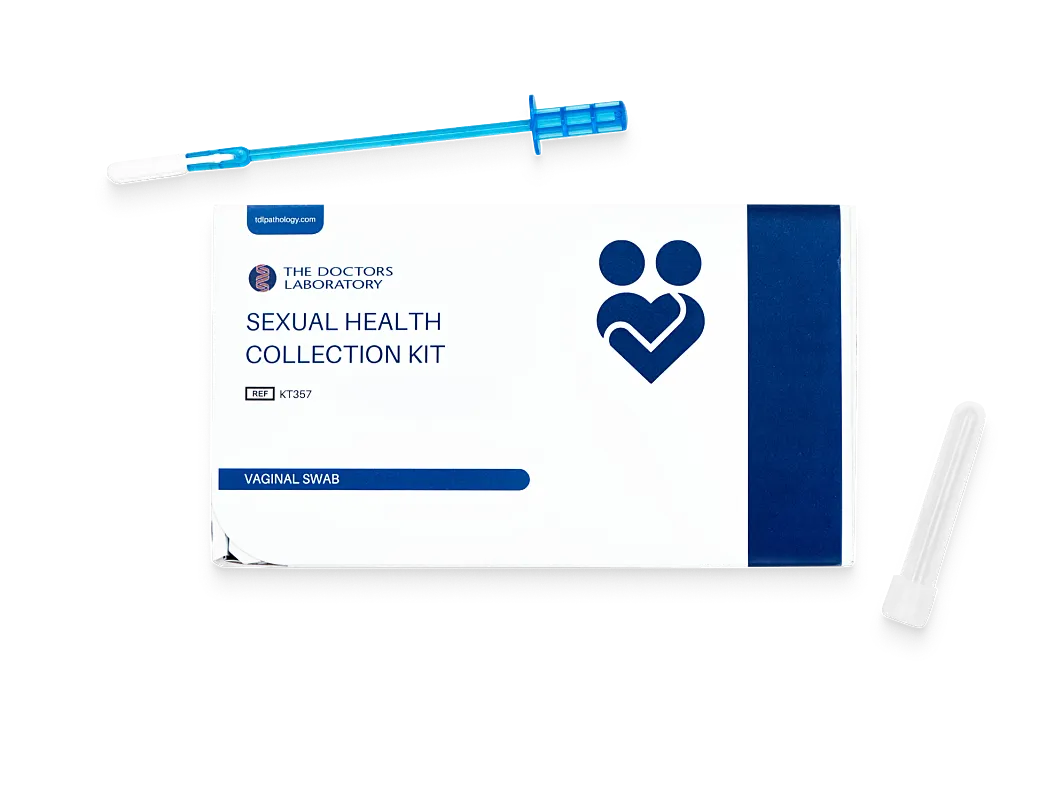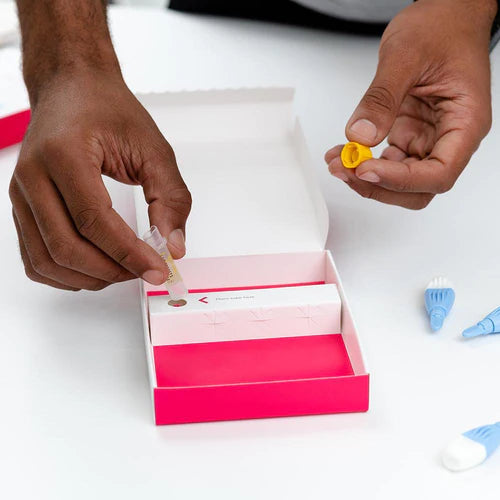
About Description
- the test helps to function various hormone productions of the pituitary gland
Why People Choose Us

Quick & Easy
No appointment or long waiting times

Discreet Packaging
Plain packaging with no medical stamps or marks

Confidential Service
Your information stays with us and private payment

UK Medication
Dispensed by registered UK pharmacists
The outer part of your adrenal glands, known as the adrenal cortex, produces hormones that are essential to life, such as cortisol, which affects metabolism and how your body reacts to stress, and aldosterone, which lowers blood pressure by maintaining a balance between salt and water.
Your adrenal glands are located on top of your kidneys. The adrenal medulla, which is located inside the adrenal glands, produces hormones like adrenaline that aid in triggering the fight-or-flight response.
Stress hormones can be produced too much or too little as a result of disorders of the adrenal glands, and this can result in a variety of symptoms such excessive fatigue, anxiety, insomnia, and weight gain.
Despite doing much more than only being released during times of stress, cortisol is referred to as the "stress hormone." The adrenal gland produces cortisol, which affects most of the cells in your body.
It can improve memory and control blood sugar, blood pressure, metabolism, inflammation, and metabolism.
High-performance athletes may create more cortisol than the ordinary person since they are frequently exposed to mentally and physically taxing situations. To further complicate matters, athletes who overtrain or push themselves too far may actually produce less cortisol.
We do know that if your cortisol levels are too high or too low, you will not perform to the best of your potential, and it will be vital to uncover the underlying cause for the disturbed levels.
However, a thorough assessment of all the material failed to find any evident trends for optimization. With you, our doctors will go over what comes next.
Every bodily function, including development, metabolism, reproduction, and sleep cycles, is controlled by hormones. Your mood and energy levels, as well as your fertility and libido, can all be negatively impacted by even a slight hormonal imbalance.
Chemical messengers known as hormones are produced in your glands and delivered into your bloodstream. Your body receives instructions from them on how to control your appetite, growth, mood, and reproduction.
In general, they maintain the body's equilibrium and functionality. Hormone imbalances are frequently treated with hormone replacement therapy or by altering one's lifestyle. Throughout the day and for women during the menstrual cycle, hormone levels change.
The pituitary gland produces the hormone follicle stimulating hormone (FSH), which is crucial for both men and women in the development of sperm and eggs.
FSH increases the growth of follicles within the ovaries in the first half of the menstrual cycle in women. Oestradiol levels will rise thanks to each of these follicles.
Follicle stimulating hormone levels fall throughout the second half of the menstrual cycle as one follicle becomes dominant and is discharged by the ovary (ovulation). In men, FSH stimulates immature sperm cells to mature into sperm by acting on the seminiferous tubules of the testicles.
Somatotropin, often known as growth hormone (hGH), is a hormone necessary for healthy body development and growth.
Growth hormone also controls lipid metabolism, bone density, and muscular mass.
The pituitary gland produces the hormone prolactin, which is important for reproductive health.
Prolactin levels can skyrocket in pregnant and nursing women, and its main function is to boost milk production after delivery.
A gland at the front of your neck called the thyroid makes hormones that aid in regulating your metabolism. Your thyroid may generate too little or too many thyroid hormones, and either situation can cause crippling symptoms.
Lethargy, weight gain, dry skin, and hair are typical symptoms of an underactive thyroid, while nervousness and anxiety are typical signs of an overactive thyroid, as well as weight loss.
Once detected, thyroid disorders can be treated, but even then, it's crucial to keep an eye on your thyroid hormone levels to make sure they stay at their ideal levels.
The thyroid is a gland located near the base of the neck that regulates several metabolic processes, including substrate turnover, heart function, muscle physiology, and energy expenditure.
Thyroid dysfunction can cause either overproduction of hormones (overactive) or underproduction of hormones (underactive), both of which can lower athletic performance. The pituitary gland produces Thyroid Stimulating Hormone (TSH), which stimulates the thyroid gland to create the thyroid hormones thyroxine (T4) and triiodothyronine (T3).
As part of a neuroendocrine cascade, thyroid hormone synthesis occurs. Thyrotropin releasing hormone (TRH) is released first in the hypothalamus, where it causes the pituitary to release thyroid stimulating hormone (TSH).
To release the hormones T3 and T4, this attaches to thyroid gland cells (thyroxine). Additionally, peripheral tissues convert T4 into T3, the thyroid hormone with greater activity.
These hormones are essentially what regulate your body's metabolism. Negative feedback loops typically maintain a tight balance between all of these levels.
Thyroid hormone over- or under-secretion can be a sign of abnormal thyroid function. These disorders frequently have an autoimmune component, which can frequently be detected by looking at your thyroid antibodies in more sophisticated thyroid tests.
One of the two hormones that the thyroid gland produces is thyroxine (T4). It accelerates the rate at which your metabolism functions.
The majority of T4 in the blood is bound to carrier proteins, but this test solely measures free, or unbound, T4, which is active in the body.
Easy Steps for your Medicine

Complete a consultation.
With complete privacy and confidentiality your form is checked by a pharmacist independent prescriber.
Choose your treatment.
From the list approved by the prescriber, choose your preferred treatment and then wait for it to be dispensed by UK Meds online pharmacy.
Receive your delivery
With next day delivery options available, you can have your treatment sent out to you discreetly within hours.Our Happy Customers
Rated Us for our Service Excellence
 Dispensed by Regulated UK Pharmacists
Dispensed by Regulated UK Pharmacists

 How it works
How it works Help
Help Account
Account
 Basket
Basket






































